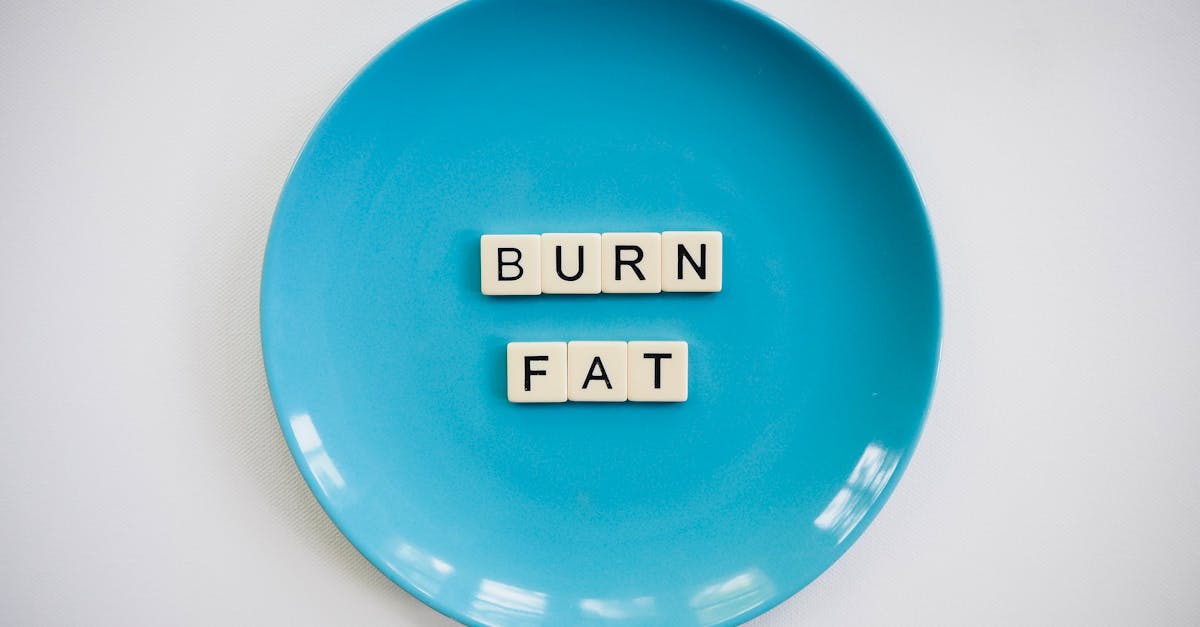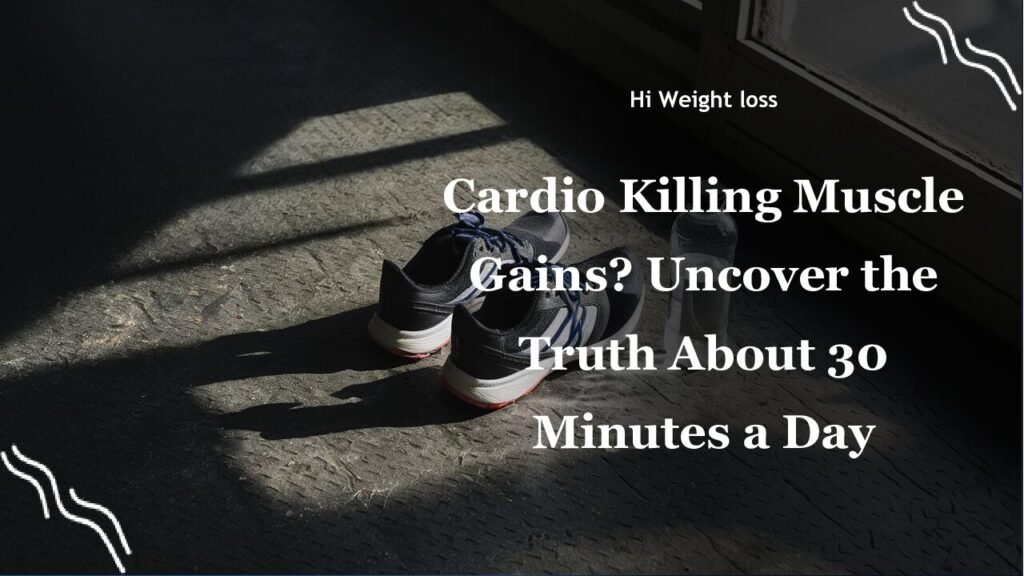“`
Are you worried that your daily 30-minute cardio session might be sabotaging your hard-earned muscle gains? It’s a common concern, especially when you’re working hard both in the gym and on the track. Many people fear that cardio will lead to muscle loss, but the truth is that 30 minutes of cardio a day is unlikely to burn muscle, particularly if you are eating a balanced diet, are getting enough rest, and are engaging in strength training, so let’s dive into the science and put your mind at ease.
Will 30 Minutes of Cardio a Day Burn Muscle?
Understanding the Relationship Between Cardio and Muscle
Let’s address the big question: *does 30 minutes of daily cardio burn muscle mass*? The short answer is, generally, no. Research, like the kind discussed on the Peloton blog, shows that cardio doesn’t inherently inhibit muscle growth. In fact, combining cardio with resistance training, known as concurrent training, can actually enhance muscle growth in certain situations, as aerobic activity helps to increase blood flow, improve muscle endurance, and boost muscle protein synthesis.
I remember when I first started combining running with my weightlifting routine. I was convinced I would lose all my gains! But, surprisingly, I noticed that my endurance improved, and I felt stronger overall, which led me to dig deeper into the science and realize how important this kind of synergy is.
Caloric Deficit and Muscle Preservation
Now, *will 30 minutes of cardio daily cause muscle loss*? It’s important to understand that a caloric deficit is the main culprit in muscle loss, not the cardio itself. Cardio does contribute to burning calories, but it’s not inherently evil for your muscles. As long as you are consuming sufficient protein, and not creating a significant calorie deficit, your body can support muscle growth and avoid muscle breakdown, according to Legion Athletics’ insights. Adequate nutrition is crucial here.
A friend of mine, Sarah, drastically cut her calories while increasing her running routine, and she noticed her muscle definition diminish. It taught her a valuable lesson: it’s not about the cardio itself, but how you fuel your body in relation to your activity.
The Role of Recovery and Nutrition
The question of *does 30 minutes of daily cardio affect muscle growth* is very dependent on recovery and nutrition. Under-fueling, poor recovery, or overtraining—not necessarily the duration or intensity of cardio—can cause muscle loss, it’s more about the overall training load and nutritional support. So, what does this mean for your fitness routine? It means balancing your workouts with plenty of rest and a diet rich in nutrients.
I have another friend, Mark, who was doing a lot of HIIT sessions and running at the same time without giving his body any rest. Not surprisingly, he started feeling burnt out and weak. When he started prioritizing sleep and nutrition, he saw his strength come back and more importantly, he didn’t lose any muscle mass.

Practical Strategies to Avoid Muscle Loss
Okay, so we know that 30 minutes of cardio is unlikely to eat away at your muscle mass, but it’s still wise to be proactive. Here’s how you can optimize your routine:
- Maintain a balanced diet: Ensure you are consuming enough protein to support muscle growth and repair.
- Prioritize recovery: Get adequate sleep and rest between workouts.
- Don’t overtrain: Allow your body to recover. Listen to your body and don’t push yourself too hard.
- Fuel up properly: Make sure you are eating enough to support your training needs, avoiding extreme caloric deficits.
In essence, it’s about finding a balance, rather than demonizing cardio. It is also important to ensure you consume adequate protein, which is crucial for muscle protein synthesis. A good target is around 0.8 to 1 gram of protein per pound of body weight. Also, consider timing your protein intake around your workouts to maximize muscle recovery. I’ve noticed a huge difference in my performance and recovery since paying attention to the timing of my protein intake.
Comparing Cardio and Strength Training
It’s important to understand how cardio and strength training differ. Cardio is great for cardiovascular health, endurance, and burning calories. Strength training, on the other hand, is essential for building and maintaining muscle mass. You don’t have to choose one or the other. Combining both is a very effective and healthy approach.
Here is a helpful table summarizing the key differences between cardio and strength training:
| Feature | Cardio Training | Strength Training |
|---|---|---|
| Primary Goal | Improved cardiovascular health, endurance, and calorie burning | Muscle strength, muscle growth, and bone density |
| Muscle Impact | Can enhance blood flow and muscle endurance; unlikely to cause significant muscle loss with proper diet and recovery | Stimulates muscle growth (hypertrophy) and strength |
| Caloric Burn | Burns calories during the activity; can contribute to a caloric deficit if not well balanced | Burns calories during and after the activity; increases resting metabolism over time |
| Recovery Needs | Generally requires less recovery time | Requires adequate recovery time for muscle repair |
Remember, neither type of training is inherently superior, they each bring different benefits. Finding the right combination and balancing the two is key.
Conclusion
So, to reiterate, doing 30 minutes of cardio a day is unlikely to burn muscle, especially if you’re smart about your training, nutrition and recovery. Don’t let the fear of muscle loss prevent you from getting your cardio in. It’s all about finding the right balance and understanding how your body responds to different exercises and routines. Remember my friend Mark, he was almost sure that the cardio routine he did would cause muscle loss, but he didn’t because he was eating a balanced diet and getting enough rest. So keep doing your cardio, but do it mindfully and with the right approach.
Now that you know the truth about cardio and muscle, it’s time to put this knowledge into action. Feel free to share this post with your friends, or better yet, start planning your next workout using these insights. Let’s continue to educate ourselves and make informed decisions about our health.
FAQ
Is it better to do cardio before or after weight training?
It really depends on your goals. If you’re focusing on strength, do cardio after. But for overall health, do it whenever it suits your schedule!
What kind of cardio is best for muscle preservation?
Low-intensity steady-state cardio (LISS) is usually best, as it’s less likely to interfere with muscle recovery, compared to High-Intensity Interval Training (HIIT).
Can I do cardio every day?
Yes, but it’s very important to listen to your body and ensure that you are not overtraining. Adequate rest and nutrition are very important.
How much protein should I eat to prevent muscle loss?
Aim for at least 0.8 to 1 gram of protein per pound of body weight. You could slightly increase the amount of protein if you are actively involved in strength training, as mentioned on Fitbod’s blog.
Does fasted cardio burn muscle?
Fasted cardio might increase the risk of muscle breakdown, but this is minimal if done in moderation. Always prioritize your nutrition and recovery.
“`



